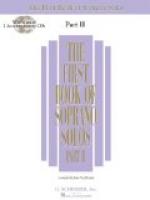He lifted his head with a lightened heart. “He will show me what to do,” he thought.
That day at lunch Hubert propounded a question to his father.
“Father,” said he, “what do you think Jesus meant by saying, ’Sell that ye have and give alms?’”
Mr. Gray reflected. “Hm!” he observed, “eh—well—” then, with a sly twinkle as though rather enjoying a coat that fitted tightly, “it doesn’t sound very obscure, does it? The language is simple. What would you think it meant?”
“That is a point I am studying. If a man came to it without prejudice or self-interest, it would seem very simple, I imagine. But I am not sure that it should be pressed to absolute literalness. But, granted that it means something, was it of limited application, or would Christ say the same thing to His followers to-day?”
“Well,” said Mr. Gray, whose theological studies had been greatly stimulated in recent months, and who had fallen into the hands of a variety of teachers, “you know some people draw pretty fine distinctions now-a-days. They may tell us that that does not belong to the church. I shouldn’t wonder a bit if some of them would slip this over our heads and let it fall on some other people. But I should say, if you ask me, that such a principle, if it applied to anybody, might certainly to us; that if heavenly-mindeduess could be enjoined upon any it might certainly upon those who are raised and seated with Christ in heavenly places.’”
“I think you are right, father. But now, just what is the principle—what is the true spirit of the text? In short, what are we to do about it?”
Mr. Gray looked at his son curiously before replying. Was it for the sake of doing the word that he pondered its meaning? To expound a text and to act upon it were two separate things. The former was sometimes the pleasanter task. But he answered honestly:
“I suppose the true way to understand a Scripture is to read it in its relation to other Scripture—in the light of every other Scripture. I confess I have not so studied it. And,” he added cautiously, “one must be very sure of the meaning of a word before he acts upon it.”
“Certainly,” said Hubert. Then he added privately that they had not waited to understand the text before proceeding to pile up treasure upon earth in abundance. “I intend to look up the subject,” he said aloud, “and see what the Bible really does teach about it; that is, what the New Testament says. I suppose if we searched the Old Testament we should find earthly prosperity guaranteed the Lord’s people on the ground of obedience. But we are under the new covenant, with heavenly riches assured.”
“Just so—just so,” murmured Mr. Gray.
The next morning the subject was renewed.
“I have found, father,” said Hubert, “that the apostolic church did precisely what Jesus had told His flock to do. They sold what they had. It was an effect of the coming of the Holy Spirit. I suppose the heavens were so opened through that illumination that earthly possessions shriveled into nothingness by comparison. What precept alone could never have power to do the entrance of the Spirit did. It turned out the love of the world and ’the things that are in the world.’”




